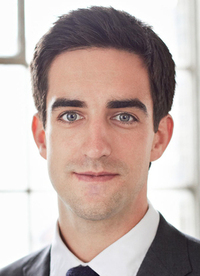Chatham House Rule Has Its Benefits- Byron McCaughey
October 5, 2012
There is a certain amount of irony in writing a blog about an event – in this case the iSportconnect Directors’ Club – that has the famous 1927 Chatham House Rule imposed on it . On one hand, I can only reveal a small amount of what the fascinating Question Time style debate by leading sports figures revealed, but then without the closed-shop format, the audience would have only heard the standard run-of-the-mill responses to topics ranging from social media to multi-platform consumption of sport content. However, by definition, Chatham House Rule states that ‘participants are free to use the information received’ provided that the information is not linked to any of the speakers – good news for both you and I.
So with that in mind, let’s dig into a couple key points from the panel, which consisted of Geoff Cousins (Jaguar), Philip Beard (QPR), Roger Draper (LTA) and the ever opinionated Barry Hearn (Matchroom Sport, Professional Darts Corporation, World Snooker and the O’s).
Topic one – social media in sport and more specifically, its role in sponsorship and creating customer action and engagement. The general panel consensus was that social media, particularly twitter, is breaking down the traditional models and giving brands a level of targeting and evaluation that other platforms do not currently provide. From Generate’s point of view, who are partners of the event, we see evidence of this through the continued shift by brands and rights holders to have tangible and accountable activity to better measure the success of a sponsorship, the activation and ticket drives. In addition, the panel gave a nod to the ability of social media to instantly activate a sponsorship – this was combined with some humorous anecdotes of how important it is to monitor your talents use of twitter (cue a certain ex-QPR player).
Barry Hearn had a chat on camera after the debate (Chatham House Rule off) and gave this insightful comment of what the industry should be focusing on: “The biggest education is we need to listen to more young people, we need to get more creative, we need to realise our own shortcomings and be prepared to learn.”
Next topic – how are we going to consume sport content in the years to come and who is going to provide that content. On TV through traditional broadcasters? Streaming on laptops, tablets or smart phones? Perhaps streaming it through a TV as Smart TV’s continue to penetrate the market? Or, will we watch it on our Smart TV, while we follow a player camera through our tablet and get set to watch the brand sponsored highlights through a traditional broadcaster?
My vote is Smart TVs will be at the forefront. Let’s be honest, the only reason I’m not streaming the El Clásico on my laptop is that I’d much rather watch it on my 32 inch flat screen and not have to worry about the internet having ‘a moment’ and missing a Messi screamer. Therefore, personally, my interest in connected (or Smart) TVs will increase as the bandwidth of my home internet increases. I’m not going to start talking about 4G and mobile devices here, but you can guess where that train of thought would lead…
Regardless of the answer to the question of consumption, Philip Beard did a marvellous job of pointing out (also to camera) that the most important thing is to get the live event element right where stadiums and venues are sold out. A good point, otherwise, you can distribute on all the platforms known to man and I won’t be as engaged, because if there are empty seats, I’m already questioning if it is the best use of my time.

To finish I will leave you with a quote from Barry Hearn who was asked to camera why he was attracted to iSportconnect and the event – it sums up the evening for me:
“As William Gladstone said on his deathbed ‘I have been a learner all my life’ – that applies to everyone who hasn’t lost the focus and the desire to expand their business.”
By Byron McCaughey, Senior Account Manager, Generate Sponsorship
{jcomments on}

